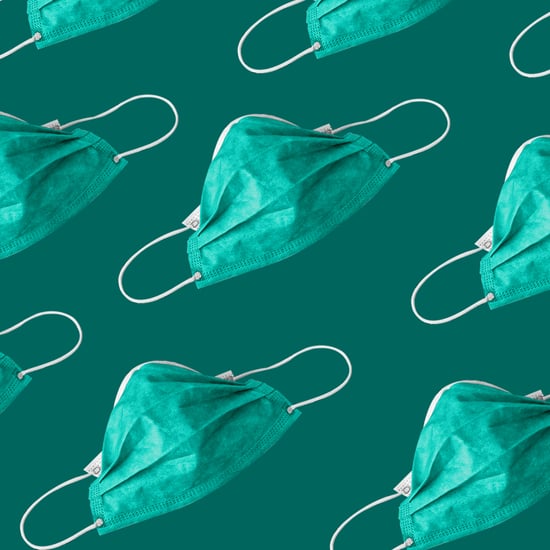Are Kids With Asthma at Greater Risk For COVID-19?
If Your Kid Has Asthma, Here's What You Should Know About the Coronavirus

Over the past several weeks, experts have calmed parents' fears regarding health risks associated with COVID-19 in children, but for those with preexisting respiratory illnesses such as asthma, guidance has been much less clear, and at the pandemic's outset, those in the medical community were far more cautionary than they are now.
"Although initially a concern, recent data is suggesting asthma is not a risk factor for significant COVID-19 disease," Dr. Natasha Burgert, a board-certified pediatrician, told POPSUGAR. "Of course, data is changing quickly, but at this time, it suggests kids with asthma are at no increased risk of hospitalization with COVID-19, and asthma does not seem to be a risk factor for patients who have died."
Dr. Roy Benaroch, a pediatrician and a professor at Emory University in Georgia, also finds current data coming from coronavirus hotspots like New York and Washington to be reassuring on this front. "Asthma is typically not one of the more significant risk factors for serious illness and death," he told POPSUGAR.
However, he cautioned, there's very little information about children with asthma and COVID. "Although mild or moderate asthma is unlikely to be a huge added risk factor, children or adults with severe asthma need to be extra careful."
Why?
"In children, almost any respiratory infection — influenza, the common cold, any respiratory virus — can be a trigger for an asthma flare-up," he said. "So there should be some concern with the new coronavirus, which is a respiratory infection. Overall, we'd expect the risk to be highest for children with poorly controlled, symptomatic asthma."
"In children, almost any respiratory infection — influenza, the common cold, any respiratory virus — can be a trigger for an asthma flare-up."
As a general rule, all children with asthma or breathing issues should have a copy of a personalized Asthma Action Plan, a document offered to all families as a reference for care management. If you're unsure of your child's plan, or if you think it is out of date, contact your child's pediatrician right away.
"Following their child's Asthma Action Plan and having all the required medications on hand is a great first step," Burgert said.
Although Benaroch said you certainly don't need to "hoard extra" medicine, you should have a few months' supply at home. "Check those expiration dates, and replace out-of-date meds to ensure they work well," he added. If your child has a "controller" medicine — like inhaled steroids that are typically taken every day as a preventative measure — it's essential to continue to take them.
If asthma symptoms flare up, Benaroch advised that parents might need to quickly add on a "rescue-style" medication until all symptoms are resolved.
"Watch for signs of uncontrolled asthma, like increased use of albuterol or the beginning of a nighttime cough," Burgert said. "Increased symptoms should trigger parents to reach out to their child's allergist or pediatrician for adjustments. These visits can often be done using telehealth, if the child is not in respiratory distress."
She also encouraged parents to keep in mind that many children with asthma also suffer from seasonal allergies.
"Correctly and aggressively manageing allergy symptoms is a key factor in asthma control," she said. "Over-the-counter products like nasal steroids and long-acting, nondrowsy antihistamines are readily available at pharmacies and through delivery services."
And although Burgert hopes the recent data will allow parents of children with asthma to "breathe a sigh of relief," she said they should remain as vigilant as ever.
"Being especially mindful of rigorous hand hygiene and social-distancing practices remain essential for all families with any chronic illness," she said. "Should the evidence change over time, you will know you have been doing everything you can to keep your family well."
POPSUGAR aims to give you the most accurate and up-to-date information about the coronavirus, but details and recommendations about this pandemic may have changed since publication. For the latest information on COVID-19, please check out resources from the WHO, CDC, and local public health departments.







